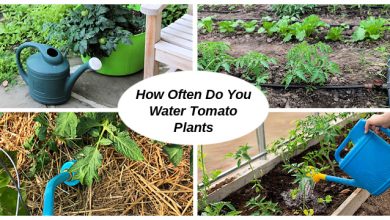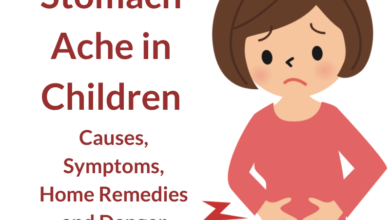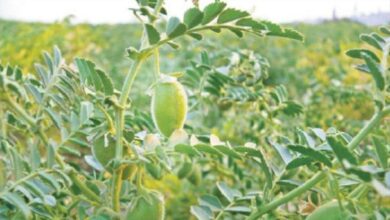Rooting: What is it and how does it work? Which ones to buy?
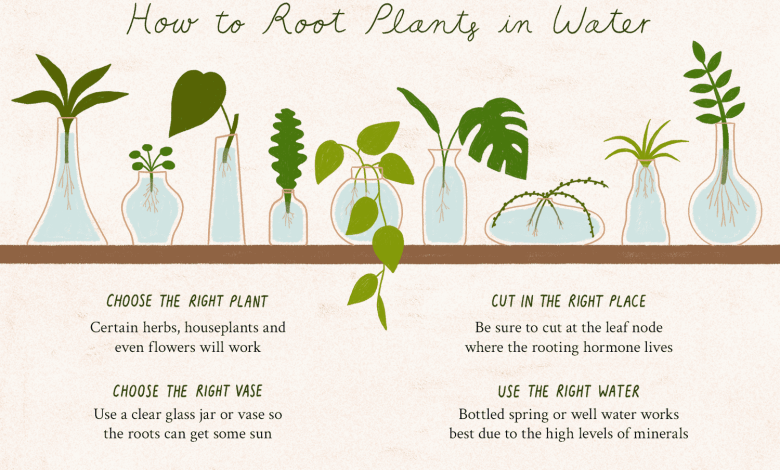
What is a rooter?
A rooting agent is considered a product made up of natural plant hormones, which aims to stimulate root growth.
It is also considered an important complement that ensures root growth in all types of vegetables.
Rooters are classified as chemical or natural, and provide nutrients to the roots. They are widely used in agriculture to favor the evolution of the main roots or develop a greater number of secondary roots.
Why can it be beneficial for my plants?
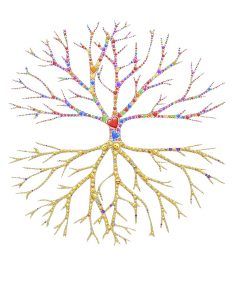 The use of rooting agents in plants is beneficial because it helps stimulate the roots and makes them develop healthy and vigorous.
The use of rooting agents in plants is beneficial because it helps stimulate the roots and makes them develop healthy and vigorous.
The application of rooting agents is necessary in any situation in which the weakening of the root system is observed as a result of excess or lack of water, root diseases or pests, salinity or excess fertilizers, etc.
How does a rooting agent work?
The mode of action, performance and efficacy of rooting agents is highly variable and depends on their nature: hormonal and/or biological.
In the vegetative reproduction processes of fibrous stems or herbaceous cuttings, hormones and liquid rooting agents were initially used to cause the appearance of roots .
However, and after many research processes, today they are widely used to speed up the advance of the roots in plants that already have their roots formed, and that later become well-rooted plants.
From these studies it is derived that rooting agents increase the fertility of plants by 40%. Evidence of its great efficacy has been obtained in various crops, such as grapes and olives.
How should I apply a rooting agent?
The application of a rooting agent in the first vital phase of the plant is very important for its proper development and growth. For your application it is important to take into account:
Application on cuttings
Proceed to soak the base of the stem, with a small amount of rooting dissolved in water.
Then, spread directly on the granules of the stem, removing the excess, and ensuring that it has been applied to the entire required surface.
GreenFaculty – Roots – Rooting for Cuttings. Natural Ecological Liquid Rooter. Root Fertilizer. Concentrated Rooting Activator 500 mL
- Rooting agent for cuttings, air layering and transplanted plants. Natural product free of hormones, ECOLOGICAL, in…
- Rooter for all types of edible, therapeutic, ornamental and medicinal plants. Both for indoor crops,…
- SUPER CONCENTRATE: Product with a high content of nutrients, with the 1 L format you can prepare 1,000 L of spring water…
- Organic fertilizer formulated with algae from the North Atlantic and amino acids that will give it a strong power of…
€21.00 View on Amazon Prices with VAT without transport
Last updated on 2022-07-27 / Affiliate Links / Affiliate API Images
Application on shrubby plants (trees)
In trees, a greater amount of rooting agent should be applied than that used in cuttings.
Dissolve approximately 5 grams per liter of water, taking into account the manufacturer’s instructions, and irrigate, with this mixture, the trees or plants that require invigoration.
For its application on bulbs, it is convenient to dilute the rooting agent in water, and place the bulb in a glass with this solution. It is important to note that only the base of the bulb should be in contact with the rooter.
 CULTIVES Ecological liquid rooting agent with natural hormones for cuttings, trees, plants and transplants. Root enhancer made with amino acids. Forcex Eco (1L)
CULTIVES Ecological liquid rooting agent with natural hormones for cuttings, trees, plants and transplants. Root enhancer made with amino acids. Forcex Eco (1L)
- It stimulates the formation of secondary roots, increasing the number of absorbent hairs and regenerating the capacity of…
- Organic fertilizer indicated for root development.
- It favors soil-plant interactions and promotes the balance between the roots and the aerial part of the plant.
- It should be used from the transplant, in the flowering and fruit set phase or to overcome stress or phytotoxicity…
€20.90 View on Amazon Prices with VAT without transport
Last updated on 2022-07-27 / Affiliate Links / Affiliate API Images
above ground application
The rooting agent can be applied directly on the soil of our crops. For this it is important to remove the soil and water, so that it is covered and moist.
Recommendations when applying rooting
At the time of applying rooting it is recommended:
- Keep the base of the cuttings or stakes submerged to obtain a stronger effect.
- Carry out the process for a period of 24 hours, in approximately 2 cm of the product, which must be dissolved at 0.1 or 0.2% of the rooting agent, for each liter of water.
- Introduce the base of the stakes or cuttings in about 2 cm of the product without dissolving or dissolved at 50% of water, and keep them that way for 10 to 20 seconds, if a faster process is required.
How do I prepare a natural rooting agent (step by step)?
There are rooting agents on the market that can help plants, but there are also some natural rooting agents with the same results and better impacts on nature than inorganic ones.
Among them you can prepare some rooting agents such as:
Coffee

Coffee has many uses, and one of them is that it is a good helper when rooting. It is done by bringing the coffee beans to a boil (it can also be done with ground coffee).
A handful of coffee is used for half a liter of water so that it is not too concentrated, it is strained to remove the remains and allowed to cool. The cutting is then left to sit for a while in this coffee liquid.
Vitaterra Rooting 60 Cc, 18216
- High phosphorus content
- Foliar or irrigation application
- concentrated product
€6.80 View on Amazon Prices with VAT without transport
Last updated on 2022-07-27 / Affiliate Links / Affiliate API Images
Cinnamon
Cinnamon is one of the easiest and fastest rooting to do. In a liter of water add 3 tablespoons of cinnamon and let it rest overnight.
You can also add carrot skins that have some root; Finally, the next day it is filtered and it would be ready.
Soy or wheat seeds
The seeds have good properties and during germination they produce hormones that can be used for rooting, so they are very useful.
To do the rooting, it is necessary to leave the soybean or wheat seeds at rest in water for about 3 hours, they are drained, but this water is reserved in the refrigerator, then this kind of porridge is crushed with new water, and filtered.
Finally, the liquid is mixed with the reserved seed water in the fridge.
Willow
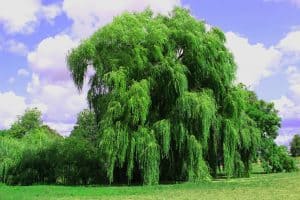 The willow has numerous properties that make it very useful for rooting very well and in a short time.
The willow has numerous properties that make it very useful for rooting very well and in a short time.
A few willow twigs with bark are required, these are washed and left in a container with water for about 3-4 weeks.
The water is then put into the fridge and only the branches are boiled in water for a few minutes.
Immediately afterwards, it is filtered and allowed to cool to room temperature. Once it is completely cold, it is added to the water that we had left in the fridge and it is ready to use.
Lentils
 Lentils are one of the best known and used, since during their germination they generate hormones from which their properties can be used.
Lentils are one of the best known and used, since during their germination they generate hormones from which their properties can be used.
For the preparation of the rooting agent, the lentils are left to rest in water for about 5 hours, some may germinate. Next, the water and lentils are blended in a blender, and then strained or filtered.
You can add a little water so that it is not so concentrated and spray it on the area of the cutting that needs to be treated.
What rooters can I buy?
Rooting hormones can be found formulated in both liquid and powder forms.
The types of powdered rooting agents usually include a fungicide that helps prevent possible infections in the cutting area.
In relation to the necessary dose of rooting agents, these powdered hormones are prepared to be applied directly and, in general, the quantity that must be used is indicated.
The hormones in liquid are recommended to be applied normally by means of the immersion method of the cuttings, for a certain time.
The time of use of the liquid rooting will be advised by the manufacturer since there are several factors, including the type of hormone and concentration, as well as the species in which it is applied, which impose rhythms that must be followed.
GreenFaculty – Roots – Rooting for Cuttings. Natural Ecological Liquid Rooter. Root Fertilizer. Concentrated Rooting Activator 500 mL
- Rooting agent for cuttings, air layering and transplanted plants. Natural product free of hormones, ECOLOGICAL, in…
- Rooter for all types of edible, therapeutic, ornamental and medicinal plants. Both for indoor crops,…
- SUPER CONCENTRATE: Product with a high content of nutrients, with the 1 L format you can prepare 1,000 L of spring water…
- Organic fertilizer formulated with algae from the North Atlantic and amino acids that will give it a strong power of…
€21.00 View on Amazon Prices with VAT without transport
Last updated on 2022-07-27 / Affiliate Links / Affiliate API Images
Doff® rooting hormone powder (75 g, 2 units). Helps new roots on cuttings and encourages strong, healthy roots
- Promotes healthy and strong roots.
- Easy to use rooting hormone powder.
- For use on weak, semi-strong and hardwood plants.
- Helps form new roots on cuttings. It can be used throughout the year.
€9.46 View on Amazon Prices with VAT without transport
Last updated on 2022-07-27 / Affiliate Links / Affiliate API Images
 ECOM Garden Ecological Biostimulant Fertilizer. 1 Liter Concentrate. Natural invigorating for indoor and outdoor plants. Yields up to 33 liters diluted.
ECOM Garden Ecological Biostimulant Fertilizer. 1 Liter Concentrate. Natural invigorating for indoor and outdoor plants. Yields up to 33 liters diluted.
- Biostimulant and protective fertilizer, 100% natural. Bottle of 1 Liter Concentrate; its cost is 0.6 euros per liter of…
- Ecological. Made exclusively with aromatic plants. Non-toxic to people or pets
- Gives vigor and color to your garden and orchard plants. Very pleasant smell. 1 Liter Concentrate. Foliar application,…
- Protects and cures fungus and insect pests. Very effective against red spider mite, aphids, worms and cochineals. Fight the…
View on Amazon Prices with VAT without transport
Last updated on 2022-07-28 / Affiliate Links / Affiliate API Images
Bibliography and references
- Leyton Sirli. Natural rooting in Coffea Canephora. Faculty of Agricultural Sciences, Agronomic Engineering career, Agrarian University of Ecuador, (2019). Guayaquil, Ecuador. PDF
- Maslinic acid as a rooting agent in herbaceous crops: Influence on physical parameters of the plant, SM Vázquez, MPG Bonillo.
- Evaluation of the microelements Zinc, Copper, Magnesium and Manganese, as a rooting agent in the cultivation of rice (Oryza Sativa l)

![Photo of Creeper Jasmine Care: [Soil, Moisture, Pruning and Problems]](https://www.complete-gardening.com/wp-content/uploads/2021/06/41JepS-TEQL._SL500_-390x220.jpg)
